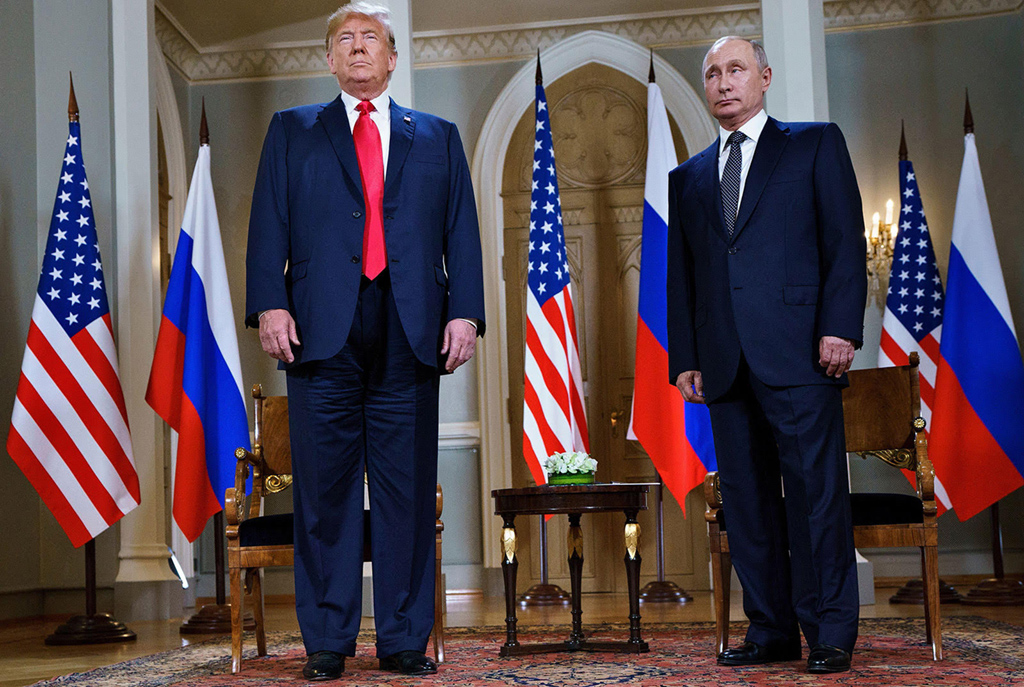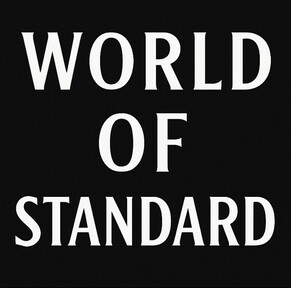Alaska: Solution to the Problem or Extension of the Crisis
09.08.2025Written by: Miloš Stevanović and Božana Simić
A New Beginning in Alaska? Bridge Between East and West
Donald Trump and Vladimir Putin during the meeting in Helsinki in 2018. Now both leaders are preparing for a new meeting on August 15, 2025, in Alaska, which many see as an opportunity for a turning point in tense relations and an end to the war in Ukraine. This long-awaited summit has attracted the attention of the global public – awakening cautious hope that after years of conflict, peace might be in sight, but also many questions about what the agreement will mean for world geopolitics. In a serious foreign policy tone, with a dose of emotion and hope, we analyze the possible goals of the meeting, the symbolism of Alaska’s choice, the geopolitical consequences for energy security, the significance of the meeting for the global balance of power, and how a Trump–Putin agreement could affect the easing of tensions in the Balkans, especially in Bosnia and Herzegovina.
Meeting Goals: Peace for Ukraine on the Horizon
The main topic of the upcoming Trump–Putin meeting will be ending the war in Ukraine, the bloodiest conflict in Europe since World War II. U.S. President Donald Trump confirmed that on August 15 he will host Russian President Vladimir Putin in Alaska to try to negotiate an end to the three-and-a-half-year war. Trump hinted that a ceasefire is within reach and that the deal could include “some territorial exchange” between the warring parties. This implies that Ukraine might have to agree to relinquish part of the territory occupied by Russian forces — a controversial option that Kyiv and European allies have long feared.
The Ukrainian side remains cautiously optimistic. President Volodymyr Zelensky has repeatedly said that he is ready for tough compromises for peace, but not for surrendering sovereign territories. Still, in an address to the nation, Zelensky emphasized that a truce is possible if adequate pressure is applied to Russia. On the other hand, Putin still lays claim to the occupied Ukrainian regions — Donetsk, Luhansk, Zaporizhzhia, and Kherson — as well as Crimea, annexed in 2014. Such maximalist positions from Moscow have so far hindered peace talks. Trump’s envoys have conducted intense shuttle diplomacy in recent months; special envoy Steve Witkoff held hours-long talks with Putin in Moscow, which both sides described as “constructive.” All this fuels hope that this summit could bring a turning point toward halting the fighting.
Although details of the possible agreement have not been publicly confirmed, it is clear that the talks will be complex. Observers point out that the key challenge will be how to reconcile Ukraine’s security demands — insisting on international guarantees and preservation of sovereignty — with Moscow’s demands for Ukrainian neutrality and recognition of Russian territorial gains. Any solution that would include formally ceding part of Ukrainian territory to Moscow would set a precedent that is politically painful and risky for Kyiv. European leaders, such as Croatian Prime Minister Andrej Plenković, have openly warned that “rewarding the aggressor by handing over conquered territory” would set a frightening precedent and effectively end international law. Therefore, Trump and his negotiators will have to balance carefully — how to stop the bloodshed and achieve peace without destabilizing the principles on which the global order rests.
Alaska as Symbol: Bridge Between East and West
The choice of Alaska as the meeting location carries strong symbolism and practical reasons. First of all, Alaska is the only U.S. state that borders Russia — at its westernmost part, across the Bering Strait, it is only 88 kilometers from the Russian coast. This geographical proximity makes it a logical and more neutral stage for a meeting of the two powers’ leaders. It is also not insignificant that Alaska was once Russian territory: the Empire sold it to the United States in 1867 for $7.2 million. Now, a century and a half later, U.S. land that once belonged to Russia becomes the site of renewed dialogue between Moscow and Washington — a kind of historical circle that gives hope that even the greatest adversaries can return to the same table.
Alaska also has strategic significance. The state’s governor, Mike Dunleavy, pointed out that Alaska lies at the crossroads of North America and Asia, with the Arctic to the north and the Pacific to the south, and that it has “for centuries been a bridge among peoples and today remains a gateway for diplomacy, trade, and security.” Precisely because of this unique position, Dunleavy believes it is fitting that globally significant talks take place here, where East and West meet. The Kremlin also welcomed the location as “quite logical” — Putin’s adviser Yuri Ushakov noted that Alaska and the Arctic region are where the economic interests of Russia and America intersect, and there are prospects for large joint projects. In other words, the meeting in Alaska is not only geographically convenient but also signals potential cooperation in the resource-rich Arctic instead of conflict.
One should not ignore the legal aspect of choosing Alaska. For the Russian president, who is under an international arrest warrant from the International Criminal Court (ICC) for war crimes in Ukraine, traveling to most countries carries the risk of arrest. The United States, however, is not a member of the ICC and is not obliged to enforce that warrant. This allowed Washington to invite Putin to U.S. soil without obstacles. Earlier, the media speculated about neutral destinations such as the United Arab Emirates or Turkey for the meeting, precisely to avoid ICC jurisdiction. But Trump decided to send a strong message of hospitality by receiving Putin “in the northernmost U.S. state.” In doing so, the American president demonstrates confidence that he can bring the Russian leader to U.S. soil for peace while avoiding the political storm that would be caused by Putin’s arrival, for example, in Washington. Alaska is far enough from centers of power and domestic politics, yet still under U.S. jurisdiction — providing a discreet but sovereign space for the two leaders to talk.
Geopolitical Consequences for Energy Security
The war in Ukraine has severely shaken global energy markets, and its possible end through a Trump–Putin agreement would inevitably have consequences for the energy security of Europe and the world. Let us recall, the Russian invasion of 2022 caused the first true global energy crisis — oil and gas prices surged to record levels, and energy markets remained on edge due to geopolitical uncertainty. Overnight, Europe lost its main supplier of natural gas and was forced to rethink its entire energy policy. European countries united in seeking alternative sources in order to stop financing Russia’s war machine by purchasing its energy products. Three years later, this effort has yielded results: Russian gas has been almost completely displaced — European imports of Russian gas have fallen to barely ten percent of pre-war volumes, an achievement that was unthinkable before the war. With increased imports of liquefied natural gas from the U.S. and accelerated investment in renewable sources, Europe has largely reduced Moscow’s blackmail potential when it comes to energy.
In this context, peace in Ukraine could further stabilize energy conditions — but also open new questions. One possible element of the agreement could be the gradual lifting of some energy sanctions on Russia in exchange for withdrawal and a lasting peace. This would mean that at least part of Russian energy products would return to the world market, which could lower global oil and gas prices and bring relief to many countries. The global economy is suffering from high energy prices, which remain elevated in many regions, so any signal of de-escalation of the war would likely ease tensions on the market. Still, Europe will likely remain cautious — after the bitter experience of dependence on Russian gas, it is unlikely that the EU would easily restore previous energy ties with Moscow. Energy security is now understood as a strategic issue, and European countries will aim for diversification and acceleration of the green transition even in the post-war period.
Interestingly, the meeting location — Alaska — also has an energy dimension. This state is rich in oil and gas (Aleutian Basin, Arctic deposits), and Russia also has large resources in the neighboring Arctic. Ushakov’s statement that the Arctic is where the interests of the two countries intertwine, and that there are possibilities for mutually beneficial projects, suggests that Trump and Putin might also broach the topic of energy cooperation in that region. If geopolitical tensions were to ease, instead of competition and militarization of the Arctic, one could imagine coordination in exploiting its resources in accordance with international rules. This would mean, for the global energy sector, an increase in supply and potentially a calming of the market in the longer term.
Of course, the question remains of how sustainable a peace would need to be to build a lasting sense of energy security. Any fragile or imposed agreement in Ukraine that does not resolve the fundamental causes of the conflict could leave markets nervous. But if, on August 15, the foundations of a stable deal are laid, the world could breathe a sigh of relief not only politically but also economically — with hope that the era of using energy resources as a weapon is coming to an end.
Global Balance of Power: A Turning Point in the International Order
The meeting in Alaska is taking place at a time of major regrouping of global powers and could have far-reaching consequences for the balance of power in the world. Trump’s return to the White House in January 2025 brought a turn in U.S. foreign policy — he openly seeks a reset of relations with Russia so he can focus on the biggest rival, China. For Trump, China is the primary threat to America’s future, so he is trying to separate Moscow from Beijing and thereby weaken a potential Sino–Russian bloc. Ending the war in Ukraine is key to that strategy: if he succeeds in making peace with Putin, Trump believes he could strike a broader global deal with Russia — in which Moscow would receive certain recognition of its interests, while committing to distancing itself from Beijing and cooperating on other hotspots such as Iran and Syria.
Such a “grand deal” would undoubtedly reshape the world order. Some analysts compare it to a new Yalta Conference: dividing spheres of influence among the great powers. The Kremlin indeed sees an opportunity to negotiate with Trump a reset of relations on foundations it considers fair — Putin believes that the West, after the collapse of the USSR, broke an unwritten agreement that NATO would not encroach on the Russian sphere of interest. Now he would like formal guarantees that Ukraine and other former Soviet republics will not enter NATO, and in return signals readiness for flexibility in regions not of vital interest to Russia, such as the Western Balkans. Putin’s “goodwill” on the Balkans — which is being speculated about — could be a card for stronger influence in Eastern Europe. In this way, Washington and Moscow could potentially draw new lines of division of influence in the world, quieting their conflict so they can focus on other threats.
Still, such a radical change in balance would not pass without resistance. European powers are uneasy about the possibility of decisions on Europe’s security being made without them. The European Union and the United Kingdom, which have borne a large share of support for Ukraine, do not want to be bypassed in negotiations — especially not if the outcome would mean accepting a Russian sphere of influence in Europe’s neighborhood. Warnings to Trump have already been heard that Europeans will not look kindly on a “great power deal over their heads” and that they are ready to strengthen their own defense if they feel U.S. commitment has weakened. Also, within the U.S., among both Republicans and Democrats, there is skepticism about excessive concessions to Putin — some members of Congress oppose any idea of reducing America’s role in NATO or recognizing any Russian “zone of influence.” Trump will therefore have to walk a fine line: achieving a historic deal with Moscow without causing a rift with traditional allies or a political storm at home.
If the summit succeeds in easing the Washington–Moscow conflict, the global balance of power could enter a new phase. One possibility is that the world slides into a more stable bipolarity: a tense front toward China, while the conflict with Russia is eased. Another possibility is a multipolar détente, where the U.S., China, Russia (and the EU) maintain competition but also dialogue on key issues. In any case, an open dialogue between the two nuclear superpowers in itself reduces the risk of direct confrontation and creates space for global problems — from arms control to climate change — to be solved through joint efforts. As one American congressman said, “the search for peace requires open dialogue,” and it is encouraging that such dialogue is taking place at the highest level. This is precisely the greatest significance of the Alaska summit: it shows that, despite all divisions and mistrust, the two sides are ready to sit at the same table. That example could influence other rivalries around the world, sending a message that no conflict needs to be resolved solely by force.
Impact on the Balkans: A Chance to Ease Tensions in Bosnia and Herzegovina
The Western Balkans is a region that, although geographically distant from Ukraine, clearly feels the consequences of strained relations among the great powers. Bosnia and Herzegovina and neighboring countries have for some time feared the spillover of global conflicts onto their own territory — rhetoric of divisions, secessionist threats, and geopolitical rivalries have intensified since the beginning of the war in Ukraine. That is why many analysts assess that a successful Trump–Putin agreement would have a cathartic effect on the Balkans. If Washington and Moscow reduce their rivalry, the incentive for local actors to “choose sides” and provoke crises would disappear. Specifically, Russian influence in the Balkans — which is most evident through support for Serbian nationalists in BiH and Serbia — could decline if Putin focuses on consolidating an agreement with the West. According to some reports, Putin is ready to show flexibility in the Western Balkans and in BiH as a sign of goodwill in a broader deal with Trump. In other words, Moscow could tacitly leave the Balkans to the West in exchange for greater understanding regarding areas of the former USSR that are vital to it.
Such an outcome would mean a major reprieve for BiH, which has fallen into a deep political crisis. Leaders of the Bosnian Serbs openly threaten the secession of Republika Srpska, encouraged by previous Russian support in the UN Security Council and on the ground. If Putin, within the framework of a global agreement, were to withdraw or soften his support for separatist aspirations, these local actors would be left without a key backer. This could also calm tensions within BiH, as disputes would have to be resolved through internal dialogue with EU and U.S. mediation instead of relying on distant Russia. Of course, the EU would in all this have to take greater responsibility to help BiH emerge from the crisis. Interestingly, European officials are already aware that the Bosnian crisis must be resolved peacefully and in favor of the democratic order, so that Europe can show credibility and so that the Balkans do not turn into a bargaining chip for the great powers. In the run-up to the Alaska summit, it is clear that Brussels wants to have its domestic issues settled — stabilizing the Balkans — in order to make it clear to Trump and Putin that there is no room for trading territories or influence there.
Still, there is also fear that a precedent of territorial exchange in Ukraine could inspire extremists in the Balkans. Any agreement that involves drawing new borders could resonate in the ears of those who dream of redrawing borders in the Balkans, whether it be the secession of an entity in BiH or ideas about partitioning Kosovo. That is why European leaders emphasize that in the Balkans “there will be no border changes” regardless of the outcome of the war in Ukraine. The stability of the region rests on respect for existing states, which is also the message the West will seek to reaffirm after any global agreement. In the ideal scenario, a Trump–Putin deal could bring new momentum to dialogue in the Balkans: with reduced Moscow interference and renewed attention from Washington (which, after resolving Ukraine, could devote more resources to unresolved issues in the Balkans), conditions would be created for long-standing tensions to be channeled into negotiations instead of confrontation. For the citizens of BiH and neighboring countries, who have already experienced the horrors of war, any sign that the great powers are finding a peaceful solution to a major conflict brings a glimmer of hope that dialogue is possible for their problems as well.
Conclusion: Dialogue Despite Divisions
A meeting in the icy distance of Alaska carries huge expectations. On August 15, the world will watch to see if two former fierce opponents can find common ground and lay the foundations for peace. The tone of the meeting will be serious — as befits a discussion about the fate of a nation and global security — but we must not overlook the grain of hope running through this entire story. Behind the closed doors of the Alaskan conference hall, there may be a new beginning not only for U.S.–Russia relations, but for a weary world longing for a respite from divisions. The emerging message is that, even in times of the greatest conflicts and mistrust, there is always room for dialogue.
Of course, the path to lasting peace will be long and uncertain. Still, the very fact that Trump and Putin will meet at the same table represents a victory of diplomacy over the fate of war. If their agreement succeeds in stopping the war in Ukraine, making energy blackmailing of Europe pointless, opening the door to cooperation in the cold Arctic, and quieting the drums of division in the Balkans, then Alaska 2025 will enter history as the place where hope defeated fear. Even if the compromises are tough, this meeting sends the world an encouraging message: that great differences can be bridged and that peace is possible when there is a will to talk. And for a region like ours, which has too often been a victim of others’ conflicts, that is a message worth mentioning.
/ / /
"Standard Prva" LLC Bijeljina is a company registered in Bijeljina at the District Commercial Court in Bijeljina. Company’s activities are accountancy, repurchases of receivables, angel investing and other related services. Distressed debt is a part of the Group within which the company repurchases the receivables, which function and are not returned regularly.
Lawyer’s Office Stevanović is the leading lawyer’s office in the region with the seat in Bijeljina. The LO abbreviation represents Lawyer’s Office of Vesna Stevanović and Lawyer’s Office of Miloš Stevanović.
Contact for media press@advokati-stevanovic.com or via telephone 00 387 55 230 000 or 00387 55 22 4444.




